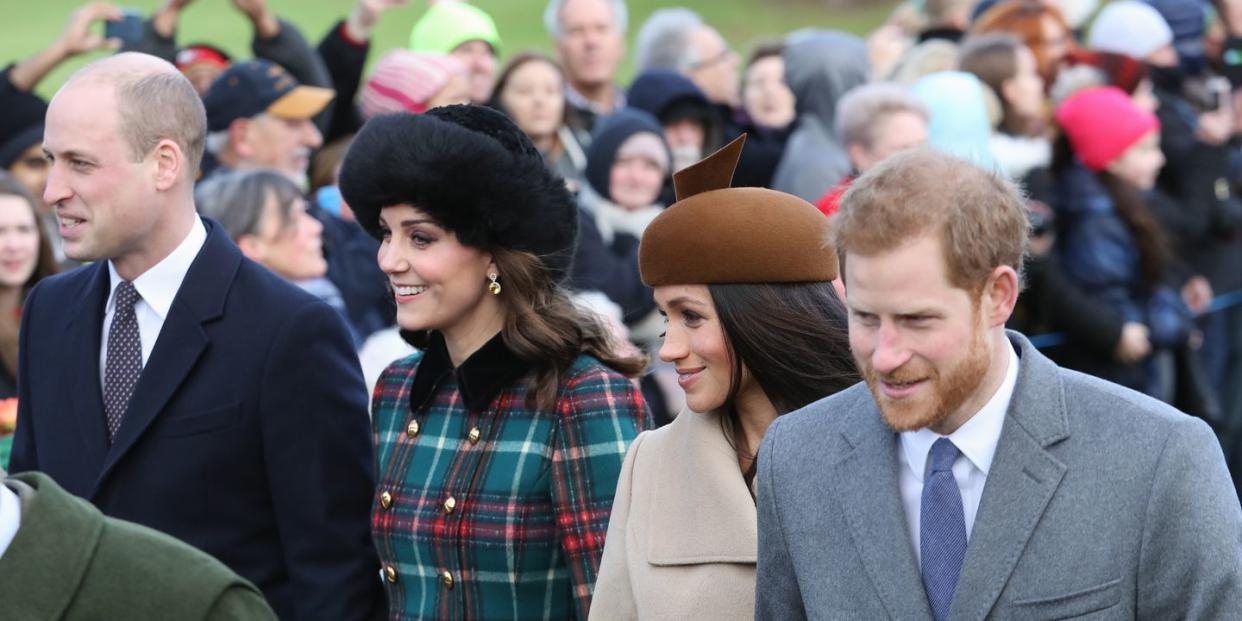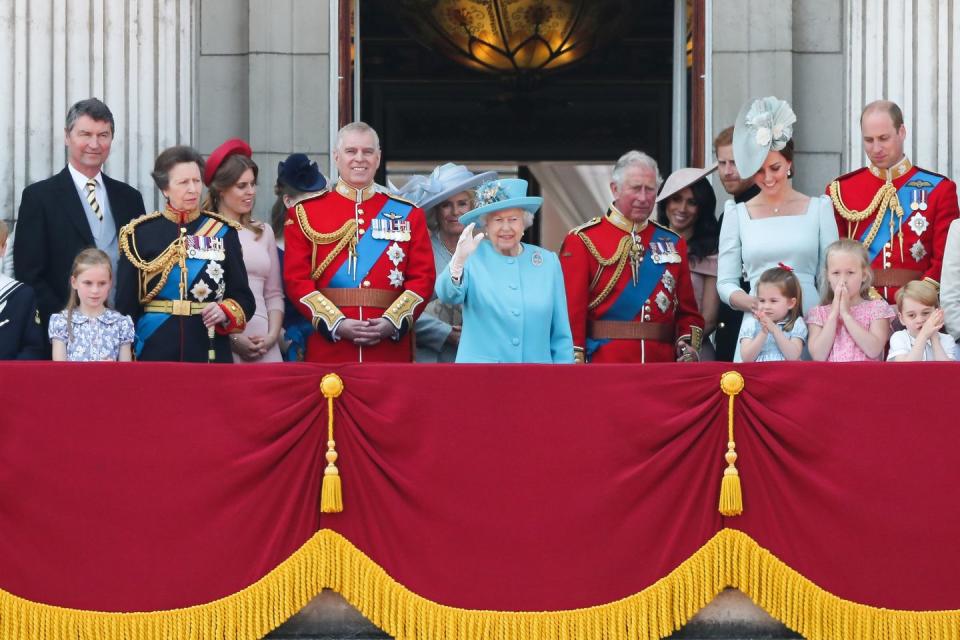Who Are Considered the "Senior Members" of the Royal Family?

Now that Prince Harry and Meghan Markle have made the decision to step down from life as “senior members” of the Royal Family, there’s a plethora of questions to be answered. The most pertinent being: who is considered a senior member of the royal family following the Sussexes' plan to exit?
What defines a senior royal family member?
There is no official list of who is or isn’t a senior member of the royal family. According to royal historian and Royal Musings founder Marlene Koenig, senior royal members are usually referred to as the sovereign, the consort, their children and spouses, the heir, and the heir's children and/or spouses.
According to Royal Central, the simplest definition for a senior royal is “any member of the Royal Family who continually carries out duties in their own right and on behalf of the crown.” Town & Country also describes these royals as usually adult relatives of the queen who are high up in the line of succession, who regularly perform duties on the queen's behalf, and who represent the monarchy.
Before their decision to "carve out a progressive new role" within the monarchy, both Prince Harry (the sixth in line for the throne) and Duchess Meghan were actively engaged with royal work, as they carried out regular public engagements.

It's often assumed that being a Counsellor of State denotes being a senior member of the royal family, although that's not always the case. According to the Royal Family’s official website, a Counsellor of State is a royal family member who is authorized to “carry out most of the official duties of the Sovereign” at engagements where she herself cannot be in attendance. Examples of these duties could be signing routine documents or attending Privy Council meetings. The current Counsellor of States for the Queen are The Duke of Edinburgh (Prince Philip), The Prince of Wales (Prince Charles), The Duke of Cambridge (Prince William), the Duke of Sussex (Prince Harry), and The Duke of York (Prince Andrew).
By law, a Counsellor of State can only be the Sovereign's spouse and the next four people in line of succession who are over the age of 21. Since Harry is naturally a Counsellor of State by law—and Meghan is married to him—that still grants the couple credit as senior ranking royal family members.
These are the remaining senior members of the royal family.
Based on those loose definitions, the remaining senior members of the royal family (without Harry and Meghan) are usually understood to be: Her Majesty the Queen, Prince Philip, Prince Charles, Camila the Duchess of Cornwall, and Prince William and Kate Middleton.
If Harry and Meghan hadn’t chosen to forego their status as senior members, they would have been included in that group. The Duke of York, Prince Andrew, also would have been included had he not stepped down from royal duties due to his connection and friendship to the disgraced Jeffrey Epstein last year.
Other royals like Princess Anne, the queen and Prince Philip's only daughter, who carried out the most working engagements last year; Prince Edward (the queen and Prince Philip's youngest child); and his wife, Sophie, Countess of Wessex, are also often referred to as "senior" members and carry out duties on the queen's behalf.
A post shared by The Duke and Duchess of Sussex (@sussexroyal) on Jan 8, 2020 at 10:33am PST
So what’s next for Meghan and Harry?
It’s important to note the careful wording of Meghan and Harry’s official statement in order not to hyperbolize what is actually going to happen in the near future regarding their roles. They said they "intend to step back as 'senior' members of the Royal Family," which means it's possible the queen may have a final say before the decision becomes official; but that's also unclear.
Harry and Meghan still plan on "carrying out their duties to the monarch as well as their charitable work" and most likely will not be giving up their official titles as the Duke and Duchess of Sussex.
According to Koenig, this is the first time members of the Royal Family have stepped away from a senior title while still hoping to carry out duties and ventures they would have otherwise done as a senior member. Koenig assumes this would mean that official engagements for the queen will be funded by the sovereign grant while anything else would be independently funded by the duke and duchess independently, but that's yet to be confirmed.
Meghan and Harry's big decision also includes a new approach to handling their relationship with the mainstream media. According to the Sussex Royal website, the couple hopes to adopt a “revised media approach to ensure diverse and open access to their work.” They will also no longer exclusively work with the Royal Rota—a small and select pool of British media organization who have access to cover royal news and events.
“Their Royal Highnesses recognise that their roles as members of the Royal Family are subject to interest, and they welcome accurate and honest media reporting as well as being held to account if appropriate," their new media policy reads. “The Duke and Duchess believe in a free, strong and open media industry, which upholds accuracy and fosters inclusivity, diversity and tolerance."
If anything, Meghan and Harry’s new approach to their public image and revamped roles as royals means that we could be seeing a lot more of the Sussexes, but in a whole new light.
You Might Also Like

